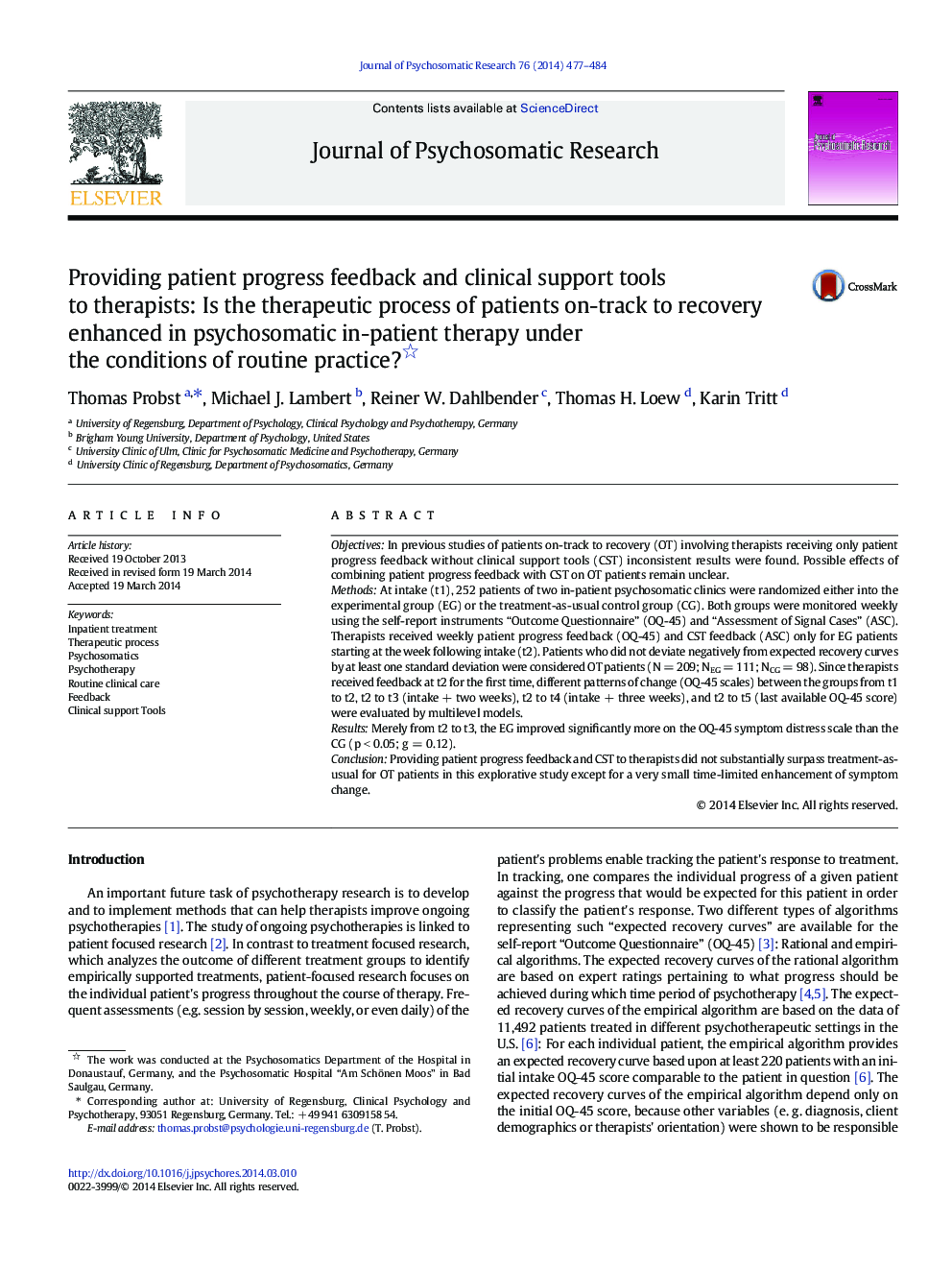| Article ID | Journal | Published Year | Pages | File Type |
|---|---|---|---|---|
| 949317 | Journal of Psychosomatic Research | 2014 | 8 Pages |
•The monitoring and feedback software OQ-Analyst was applied in psychosomatic clinics.•Therapists received weekly feedback for patients randomized into the feedback group.•Feedback consisted of patient progress feedback and clinical support tools (CST).•The effects of this kind of feedback were explored for in-patients on-track to recovery.•Only a very small time-limited feedback effect was found for on-track in-patients.
ObjectivesIn previous studies of patients on-track to recovery (OT) involving therapists receiving only patient progress feedback without clinical support tools (CST) inconsistent results were found. Possible effects of combining patient progress feedback with CST on OT patients remain unclear.MethodsAt intake (t1), 252 patients of two in-patient psychosomatic clinics were randomized either into the experimental group (EG) or the treatment-as-usual control group (CG). Both groups were monitored weekly using the self-report instruments “Outcome Questionnaire” (OQ-45) and “Assessment of Signal Cases” (ASC). Therapists received weekly patient progress feedback (OQ-45) and CST feedback (ASC) only for EG patients starting at the week following intake (t2). Patients who did not deviate negatively from expected recovery curves by at least one standard deviation were considered OT patients (N = 209; NEG = 111; NCG = 98). Since therapists received feedback at t2 for the first time, different patterns of change (OQ-45 scales) between the groups from t1 to t2, t2 to t3 (intake + two weeks), t2 to t4 (intake + three weeks), and t2 to t5 (last available OQ-45 score) were evaluated by multilevel models.ResultsMerely from t2 to t3, the EG improved significantly more on the OQ-45 symptom distress scale than the CG (p < 0.05; g = 0.12).ConclusionProviding patient progress feedback and CST to therapists did not substantially surpass treatment-as-usual for OT patients in this explorative study except for a very small time-limited enhancement of symptom change.
